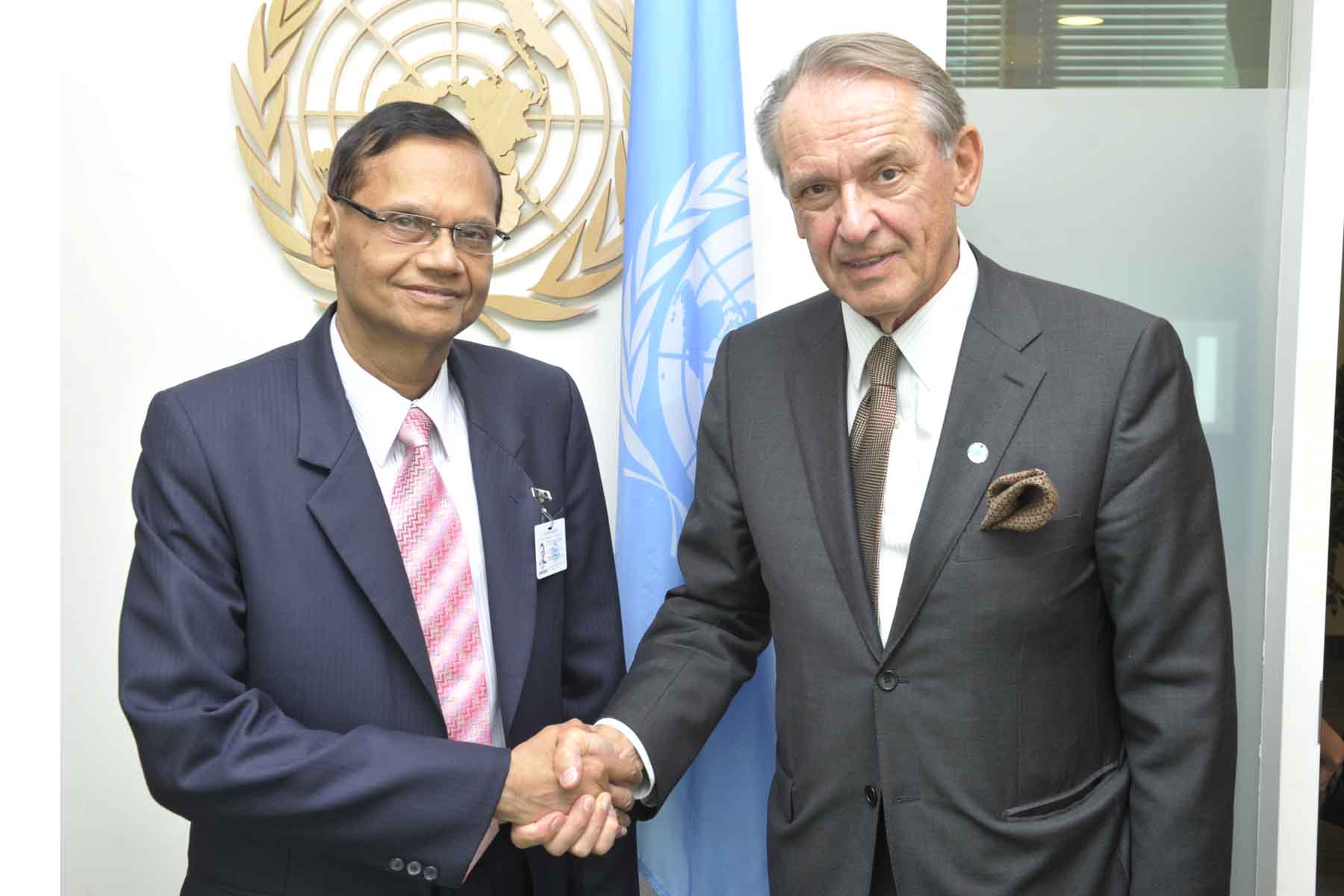
At these meetings welcoming the observation by the UN officials that the Northern Provincial Council Elections having attracted an impressive voter turn-out, and being free and fair, Minister Peiris stated that holding it after a lapse of 24 years itself is a triumph. He said that the TNA is now called upon to discharge their responsibilities to the voters. The Minister recalled that some of the references in the TNA manifesto linked to sensitive political issues were unfortunate and underscored that the need of the hour is to exercise restraint and move towards reconciliation. He added that glorification through TNA statements of a terrorist leader who has been condemned worldwide for atrocities against humanity would not augur well to begin this journey of governance. He also said that the government is prepared to work with the newly elected Council and the political processes have now fully commenced.
Minister Peiris explained the extensive efforts made by the government to restore normalcy in the former theatre of conflict demonstrating that the Government, has addressed a number of challenges in a brief period of four years, including some requiring a longer period of gestation. He explained that these efforts were not only about “bricks and mortar” but a comprehensive process which included resettlement of the displaced, rehabilitation of ex-combatants, provision of vocational training, launching and implementation of the Trilingual Policy and improvements in health and education sectors, to name a few. He said that steps have also been taken to address the complex issue of land ownership, due to competing claims. He also pointed out that the Government has allocated massive amount of funding to the North, while facing criticism on the disproportionate funds being allocated to other provinces. In this context, Minister Peiris regretted the lack of adequate acknowledgement of these achievements.
Minister Peiris further said that no other country which had undergone a similar traumatic experience has been required to restore everything within such a short span of time, and therefore Sri Lanka seeks a greater sense of objectivity from the UN. He regretted that the pressure from some members of the international community was a result of diaspora influence. The Minister stressed the importance of uniformity and consistency of the standards applied and the need to refrain from the use of selective criteria.
Deputy Secretary-General Eliasson said that he understood the nature of challenges Sri Lanka is faced with, and acknowledged that changes cannot be made overnight given the country has undergone a protracted, traumatic war. He noted the progress made by Sri Lanka with regard to the implementation of recommendations of its domestic mechanism, the Lessons Learnt and Reconciliation Commission (LLRC) and added that establishing a Commission of Inquiry (CoI) was a positive development. He also stated that avenues for further development assistance to Sri Lanka, through the UNDP could be explored.
Under-Secretary-General Feltman pointed out that he is aware of the complexities of the challenges in Sri Lanka and reiterated the Secretary-General’s acknowledgement of the progress made on overcoming the post-conflict challenges.
Minister Peiris said that Sri Lanka requires the UN’s willingness to work with the country with a proper understanding of the complexities and related nuances. He further emphasized that undue external pressures would not be helpful as they could trigger unwarranted reactions locally and otherwise. It was concluded that the ongoing engagement between Sri Lanka and the UN should continue in a spirit of goodwill and partnership, free from politicization.
Permanent Mission of Sri Lanka to the UN
New York
28 September 2013




